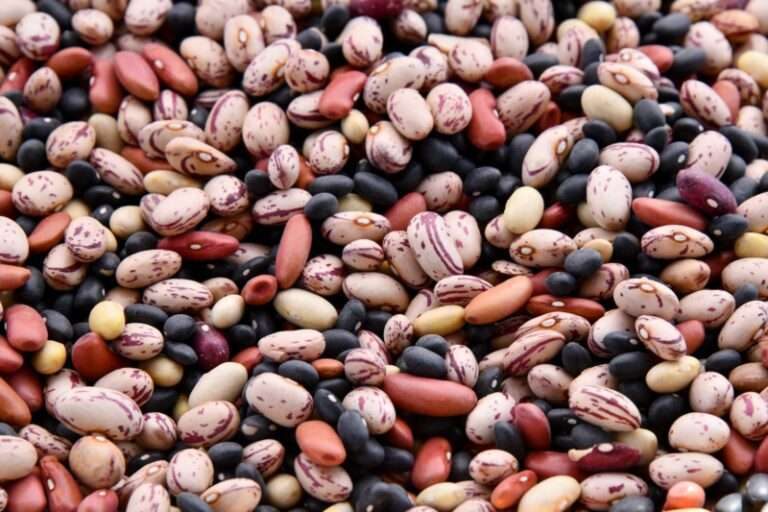Insulin sensitivity is a key factor in proper metabolism and maintaining a healthy weight. As a result, it is important to take steps to ensure our bodies remain sensitive to insulin. One of the best and easiest ways to do this is to select foods that have been shown to have a positive impact on insulin sensitivity. To help you out, this blog post will discuss some of the best foods for insulin sensitivity, to eat if you are looking to boost it.
We will discuss the science behind why these foods are beneficial, as well as provide practical ideas for how to incorporate these foods into your diet. By the end of this post, you should have a better understanding of which foods to eat if you are looking to increase your insulin sensitivity.
Table of Contents
1. Foods Rich in Dietary Fiber
Foods that contain dietary fiber, such as legumes and whole grains, have been found to help alleviate insulin sensitivity. These kinds of foods contain complex carbohydrates and help to maintain normal glucose levels in the body, which aids in controlling insulin sensitivity.
Additionally, dietary fiber is beneficial for a healthy digestive system, which may help to maintain insulin sensitivity levels over time.
2. Low Glycemic Index Foods
This document investigates the potential of certain food items to boost insulin sensitivity. It has been found that consuming foods with a low glycemic index, such as non-starchy vegetables, can help to alleviate insulin sensitivity.
These foods contain various nutrients that aid in maintaining healthy levels of insulin in the body. There is evidence that suggests that consuming these foods may help to maintain healthy levels of insulin in the body, which in turn may help to improve insulin sensitivity.
3. Omega-3 Fatty Acids
Adding omega-3 fatty acids to one’s diet can help to alleviate insulin sensitivity. Found in oily fish, nuts, and seeds, omega-3 fatty acids contain essential fatty acids that help maintain insulin sensitivity by aiding in the regulation of glucose.
Studies have found that the addition of omega-3 fatty acids to one’s diet can help to increase insulin sensitivity and ultimately lead to better management of glucose levels.
4. Monounsaturated Fats
This document aims to provide comprehensive information about foods that boost insulin sensitivity. Eating foods high in monounsaturated fats can help to alleviate insulin sensitivity issues, as they contain essential fatty acids that help to maintain normal body functions.
Avocados and olive oil are two key examples of foods that contain high levels of monounsaturated fats, and consuming them regularly aids in boosting insulin sensitivity in the body.
5. Foods Rich in Magnesium
The fifth food that helps to boost insulin sensitivity is to add foods that contain magnesium to your diet. Nuts, legumes, and leafy greens are all foods that are rich in magnesium and can help to alleviate blood sugar spikes.
Magnesium helps to maintain the body’s insulin sensitivity and aids in the absorption of glucose into cells, thus helping to maintain healthy blood sugar levels.
6. Colorful Fruits and Vegetables
Eating a variety of colorful fruits and vegetables can be an important part of maintaining insulin sensitivity. Fruits such as berries and cruciferous vegetables, like broccoli, cauliflower, and Brussels sprouts, contain antioxidants that help to alleviate oxidative stress in the body, which aids in maintaining insulin sensitivity.
Also, these fruits and vegetables are rich in dietary fiber that helps to slow down digestion and absorption of glucose, aiding in the regulation of insulin sensitivity. Furthermore, certain vitamins, minerals, and phytochemicals found in these foods work together to help maintain healthy insulin sensitivity.
7. Probiotic Rich Foods
Consuming probiotic-rich foods such as yogurt, kefir, and sauerkraut may help to improve insulin sensitivity by aiding the body in maintaining a healthy balance of microorganisms.
This type of food contains beneficial bacteria that may alleviate the symptoms of insulin resistance by aiding the body in using glucose more efficiently. Studies suggest that probiotic-rich foods may help to improve glucose metabolism, which in turn can help to maintain normal blood sugar levels.
In conclusion, consuming the right foods can be a great way to naturally increase insulin sensitivity. Eating foods that are high in protein and fiber, as well as those that are low in sugar, can be beneficial to maintaining healthy insulin levels.
Eating a balanced diet that includes whole grains, fruits, vegetables, and legumes can also help increase insulin sensitivity. Incorporating these foods into your daily routine can help you regulate your blood sugar levels and maintain optimal health.

